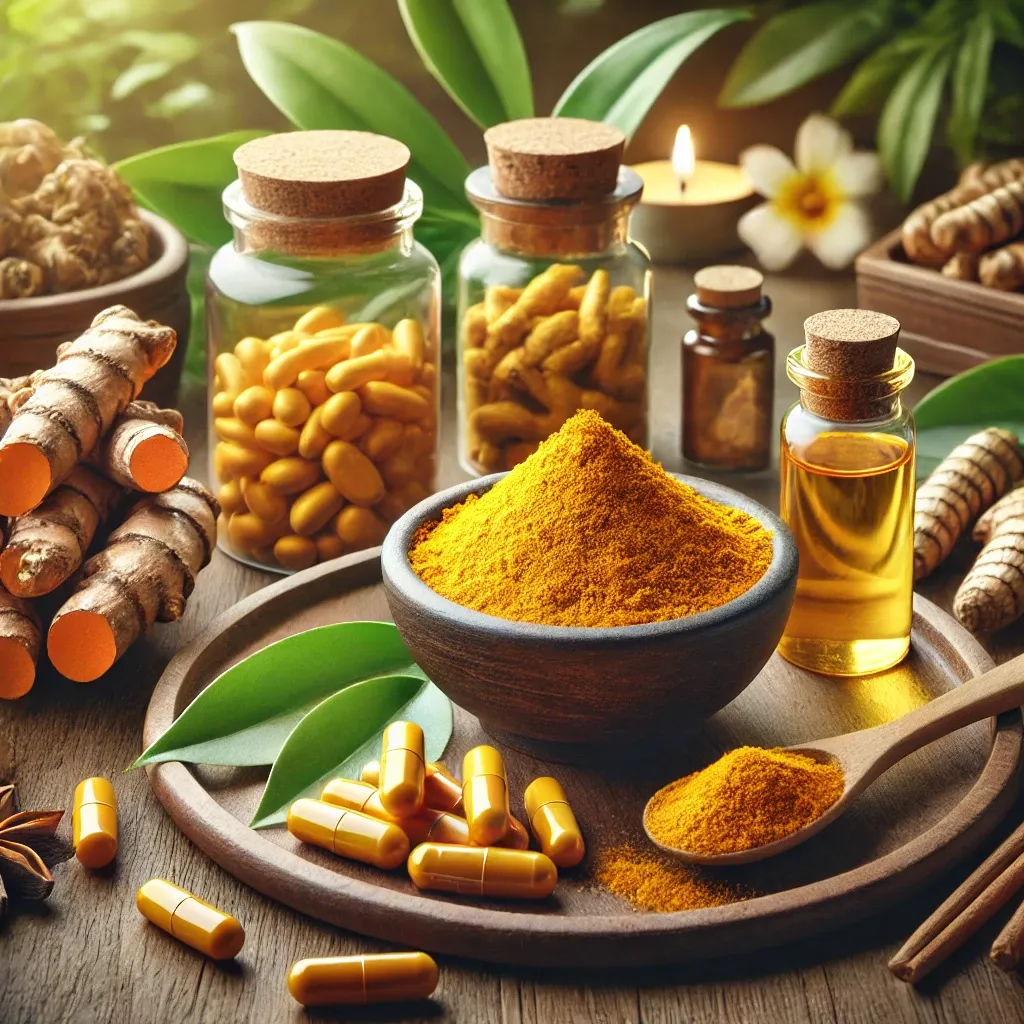Turmeric: The Great Medicine
Turmeric, often referred to as the "golden spice," has been a cornerstone of traditional medicine for thousands of years. This vibrant yellow-orange root, native to Southeast Asia, is not just a culinary staple but also a powerful medicinal herb. From ancient Ayurvedic practices to modern scientific research, turmeric has earned its reputation as one of nature’s most potent healers. But what makes turmeric so special? Let’s dive into the science, history, and practical applications of this incredible spice.
What is Turmeric?
Turmeric comes from the root of the Curcuma longa plant, a member of the ginger family. It’s widely used in cooking, especially in Indian, Middle Eastern, and Southeast Asian cuisines, where it adds color, flavor, and depth to dishes like curries, soups, and rice. However, turmeric’s true power lies in its active compound, curcumin, which is responsible for most of its health benefits.
Curcumin is a polyphenol with strong anti-inflammatory, antioxidant, and antimicrobial properties. It’s this compound that has captured the attention of scientists and health enthusiasts worldwide, making turmeric a subject of extensive research.
The History of Turmeric as Medicine
Turmeric’s medicinal use dates back over 4,000 years. In Ayurveda, India’s ancient system of medicine, turmeric has been used to treat a variety of ailments, from digestive issues to skin conditions. It was also a key component of traditional Chinese medicine, where it was used to improve circulation and relieve pain.
In ancient times, turmeric was even used as a natural dye and a preservative due to its antimicrobial properties. Its versatility and effectiveness have made it a timeless remedy across cultures.
The Science Behind Turmeric’s Healing Powers
Modern science has begun to uncover the mechanisms behind turmeric’s health benefits. Here’s a breakdown of its most well-researched properties:
1. Anti-Inflammatory Effects
Chronic inflammation is linked to many diseases, including heart disease, cancer, and Alzheimer’s. Curcumin is a powerful anti-inflammatory agent that works at the molecular level to block inflammatory pathways. Studies have shown that curcumin can be as effective as some anti-inflammatory drugs, without the side effects.
2. Antioxidant Properties
Oxidative stress, caused by free radicals, contributes to aging and many chronic diseases. Curcumin neutralizes free radicals and boosts the body’s own antioxidant enzymes, protecting cells from damage.
3. Brain Health
Curcumin has been shown to cross the blood-brain barrier, which means it can directly benefit brain health. It may help improve memory, reduce symptoms of depression, and even lower the risk of neurodegenerative diseases like Alzheimer’s. One study found that curcumin increased levels of brain-derived neurotrophic factor (BDNF), a protein that supports brain function.
4. Heart Health
Turmeric improves the function of the endothelium, the lining of blood vessels, which is crucial for regulating blood pressure and preventing heart disease. It also reduces inflammation and oxidation, two key factors in heart disease.
5. Cancer Prevention
While more research is needed, some studies suggest that curcumin can inhibit the growth of cancer cells and reduce the spread of tumors. It’s particularly promising in preventing cancers of the digestive system.
6. Digestive Health
Turmeric stimulates bile production, which aids in digestion and helps prevent bloating and gas. It’s also been used to treat conditions like irritable bowel syndrome (IBS) and ulcerative colitis.
How to Use Turmeric for Maximum Benefits
While turmeric is a powerful medicine, its bioavailability (the body’s ability to absorb and use it) is relatively low. Here are some tips to get the most out of turmeric:
Pair it with Black Pepper: Piperine, a compound in black pepper, enhances curcumin absorption by up to 2,000%. Adding a pinch of black pepper to turmeric can significantly boost its effectiveness.
Combine it with Healthy Fats: Curcumin is fat-soluble, meaning it’s better absorbed when consumed with fats like olive oil, coconut oil, or avocado.
Consider Supplements: If you’re looking for a more concentrated dose, curcumin supplements are available. Look for ones that include black pepper extract or are formulated for better absorption.
Cook with It: Incorporate turmeric into your daily meals. Golden milk, a traditional drink made with turmeric, milk, and spices, is a delicious and healthy option.
Real-Life Examples and Case Studies
- Arthritis Relief: A 2012 study published in Phytotherapy Research found that curcumin was more effective than a common anti-inflammatory drug in reducing pain and swelling in patients with rheumatoid arthritis.
- Depression Management: A 2017 study in the Journal of Affective Disorders showed that curcumin supplementation significantly improved mood in people with major depressive disorder.
- Skin Health: Turmeric has been used for centuries to treat skin conditions like acne, eczema, and psoriasis. Its anti-inflammatory and antimicrobial properties make it a natural remedy for clear, healthy skin.
Potential Side Effects and Precautions
While turmeric is generally safe, it’s important to use it in moderation. High doses can cause digestive issues like nausea or diarrhea. People with gallbladder problems, bleeding disorders, or those taking blood-thinning medications should consult a doctor before using turmeric supplements.
Conclusion: Turmeric as a Timeless Remedy
Turmeric is more than just a spice—it’s a natural medicine with a rich history and a promising future. Its active compound, curcumin, offers a wide range of health benefits, from reducing inflammation to protecting the brain and heart. By incorporating turmeric into your diet or supplement routine, you can harness the power of this golden spice to support your overall health.
As research continues to uncover new benefits, turmeric’s status as a "great medicine" is only set to grow. So, the next time you sprinkle turmeric into your curry or sip on a cup of golden milk, remember: you’re not just enjoying a flavorful ingredient—you’re partaking in a tradition of healing that spans millennia.
By understanding and embracing the power of turmeric, we can take a proactive step toward better health, one golden spoonful at a time.
1. What is the best way to consume turmeric?
The best way to consume turmeric is by incorporating it into your daily diet. You can add it to soups, stews, smoothies, or make golden milk. For better absorption, pair it with black pepper and healthy fats.
2. How much turmeric should I take daily?
For general health, 1-3 grams of turmeric powder (about ½ to 1½ teaspoons) per day is recommended. If using supplements, follow the dosage instructions on the label or consult a healthcare provider.
3. Can turmeric help with weight loss?
Turmeric may support weight loss by reducing inflammation, improving digestion, and regulating blood sugar levels. However, it’s not a magic solution and should be combined with a healthy diet and exercise.
4. Is turmeric safe during pregnancy?
While turmeric in food amounts is generally safe during pregnancy, high doses or supplements should be avoided unless approved by a healthcare provider.
5. Can turmeric interact with medications?
Yes, turmeric can interact with blood thinners, diabetes medications, and drugs that reduce stomach acid. If you’re on medication, consult your doctor before taking turmeric supplements.





0 Comments